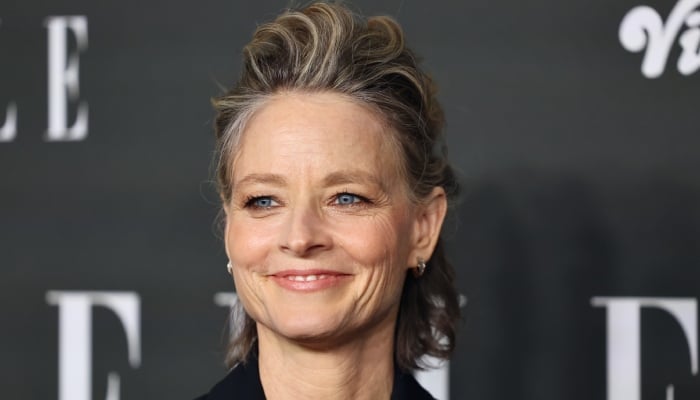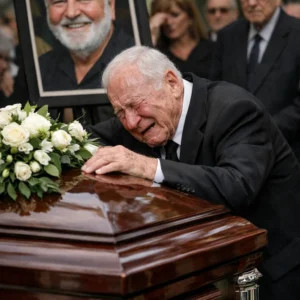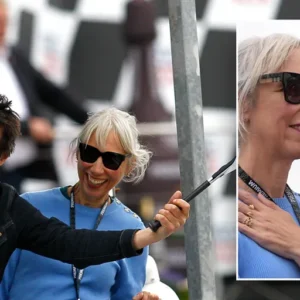LOS ANGELES, May 22, 2025 — At 62, Jodie Foster remains a towering figure in Hollywood, her career spanning six decades marked by critical acclaim, two Academy Awards, and a selective approach to her craft. As she promotes her latest film, Vie Privée (A Private Life), which premiered at the Cannes Film Festival on May 21, Foster has offered rare and candid advice to young actors on how to choose the best scripts. In a recent interview with Variety, the actress and filmmaker, known for her roles in Taxi Driver, The Accused, and The Silence of the Lambs, emphasized the importance of prioritizing narrative depth and personal resonance over the mere act of performing. Her insights, drawn from a lifetime of navigating the industry, provide a roadmap for emerging talent in an era where opportunities abound but quality can be elusive.
A Career Built on Selectivity
Foster’s journey began at age three with a Coppertone commercial, evolving into a prolific child actress with standout roles in Disney films like Freaky Friday (1976) and Martin Scorsese’s Taxi Driver (1976), for which she earned her first Oscar nomination at 14. Her transition to adult roles was seamless, with Oscar wins for The Accused (1988) and The Silence of the Lambs (1991), showcasing her ability to select projects that challenge and define her. Unlike many peers, Foster has never been one to chase every opportunity. “I’m picky,” she told Variety. “I’m not really interested in acting just for the sake of acting. I need a story.” This philosophy has guided her through over 50 films and 30 television projects, including recent successes like Nyad (2023), which earned her a fifth Oscar nomination, and True Detective: Night Country (2024), which won her a Primetime Emmy.
Her latest venture, Vie Privée, a French-language thriller where she plays a psychiatrist unraveling a murder mystery, reflects this approach. The film, directed by Rebecca Zlotowski, blends thriller and comedy elements, a mix Foster finds uniquely appealing in European cinema. “It has to really speak to me,” she said of the script. “I’m interested in narrative and developing a character who propels the story.” This selective nature sets her apart, especially as she observes a younger generation of actors taking a different path.

Advice Rooted in Experience
Foster’s advice to young actors centers on discernment. She expressed confusion about the current trend where many emerging talents seem willing to accept any role, regardless of quality. “I see a lot of young actors, and I’m not saying I’m jealous, but I don’t understand how they just want to act,” she remarked. “They don’t care if the movie’s bad. They don’t care if the dialogue is bad. They don’t care if they’re a grape in a Fruit of the Loom ad.” This observation highlights a shift in priorities, where the act of performing often overshadows the material’s merit.
For Foster, the script is the foundation. She advises young actors to seek projects that offer a compelling narrative or a character with depth. “If I never acted again, I wouldn’t really care,” she admitted, underscoring her belief that acting should serve a larger purpose—be it storytelling or cinematic art. This stance contrasts with the economic realities many young actors face, where taking any role can be a necessity to pay bills or gain visibility. Yet, Foster encourages them to hold out for scripts that align with their artistic vision, drawing from her own experience of turning down projects, including the sequel Hannibal after The Silence of the Lambs, to maintain her standards.
Her advice extends beyond script selection to the process of acting itself. Having directed films like The Beaver (2011) and Money Monster (2016), Foster brings a dual perspective. She suggests young actors focus on collaboration, using the script as a starting point to build a character. “I want them to not question themselves,” she said of her directing style, emphasizing preparation and spontaneity. This approach, she believes, can help actors find roles that resonate personally, much like her own choice to star in Nell (1994), which she also produced, or Contact (1997), where she portrayed a scientist grappling with existential questions.
A Generational Divide
Foster’s comments reveal a generational divide in Hollywood. She has previously described Gen Z actors—born roughly between 1997 and 2012—as “really annoying, especially in the workplace,” citing their casual attitudes toward punctuality and grammar in emails. This critique, shared in a 2024 Guardian interview, suggests a clash between her disciplined upbringing and the more relaxed ethos of younger talent. Yet, her frustration is tempered by a desire to mentor. She has reached out to actors like Bella Ramsey, the non-binary star of The Last of Us, to offer guidance, recognizing the challenges of growing up in the spotlight—a path she knows well.
This mentorship reflects her belief that young actors need to “learn how to relax, how to not think about it so much, how to come up with something that’s theirs.” Foster’s own career was shaped by a strong support system, including her mother, Brandy, who managed her early years, and later her own choices to attend Yale and take breaks to redefine her trajectory. She encourages emerging actors to carve out space for personal growth, suggesting breaks like college or other pursuits to gain perspective—advice she once gave to Kristen Stewart, her co-star in Panic Room (2002).
The Industry Context
Foster’s advice comes at a time when the film industry is evolving. Hollywood’s reliance on franchises and streaming content has flooded the market with projects, many of which prioritize quantity over quality. Young actors, often starting with limited leverage, may feel pressured to accept roles in low-budget films or commercials, as Foster’s “grape in a Fruit of the Loom ad” quip illustrates. This contrasts with her own era, where child stars like her had fewer opportunities but greater control over high-profile projects.
Europe, where Foster is currently thriving with Vie Privée, offers a different model. She praises the continent’s filmmaking for its director-driven approach and genre flexibility, noting, “In the US, studios want a film to be either a thriller or a comedy—they don’t want a mixture of the two. But in France, the director has more authority on such decisions.” This environment aligns with her preference for narrative-driven work, a lesson she hopes young actors will consider when evaluating scripts.
Challenges for Young Actors
While Foster’s advice is sage, it’s not without challenges. Not every actor has her financial security—her net worth is estimated at $100 million—or her established reputation to be selective. Actors like Nicolas Cage have spoken of taking subpar roles to manage debts, a reality Foster acknowledges indirectly. Her privilege allows her to prioritize art over commerce, a luxury many cannot afford early in their careers. Still, she urges perseverance, suggesting that quality work will eventually attract the right opportunities.
Another hurdle is the industry’s gender dynamics, which Foster has critiqued throughout her career. She has noted being “shocked” by how many scripts she received early on where a female character’s motivation hinged on rape, a trope she found limiting. This insight, shared in a Hollywood Reporter roundtable, underscores her call for scripts that offer diverse, authentic portrayals, a standard she hopes young actors will demand.
A Legacy of Guidance
Foster’s advice is part of a broader legacy of mentorship. She has directed episodes of Orange Is the New Black and House of Cards, nurturing new talent behind the camera, and her production company has backed projects like The Baby Dance (1998). Her willingness to share wisdom reflects a desire to elevate the industry, much like her advocacy for female directors, a cause she championed at Cannes while promoting Vie Privée.
As she navigates this new phase—acting in French, directing intermittently, and living part-time outside the US—Foster’s insights offer a beacon for young actors. Her call to prioritize story over stardom challenges the current landscape, encouraging a return to the craft she mastered over decades. Whether her advice reshapes the choices of the next generation remains to be seen, but it undeniably echoes the principles that have sustained her own remarkable career.
For now, with Vie Privée set for a 2025 release and her influence growing, Foster stands as both a cinematic icon and a mentor, urging young actors to seek scripts that ignite their passion and propel their narratives. In an industry often driven by trends, her voice is a reminder of the power of selectivity and the enduring value of a good story.





